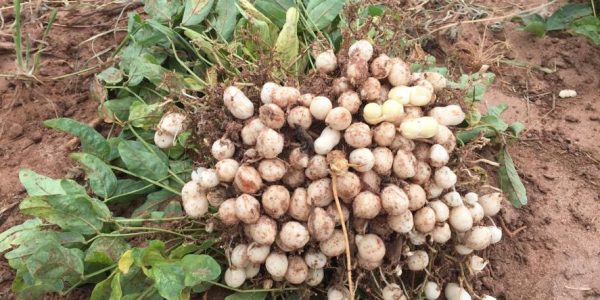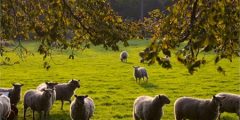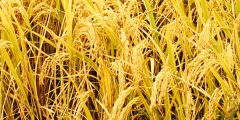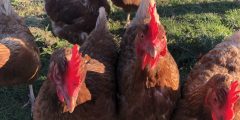How do we feed the world in the face of global population growth, changing demographics and climate change?
November 21, 2022
This post is written by Prof Andy Salter While the implications of, and solutions to, climate change, were discussed at COP27, two major global demographic landmarks were reached. The global population reached 8 billion and the population of India now matches that of China. These figures highlight the multifactorial challenges we face in ensuring adequate …
Improving animal feeds for the future: An interview with Noriane Cochetel
March 22, 2022
Noriane Cochetel is a PhD candidate with the Future Proteins Platform. Her supervisors are Ying Zhang, Tim Parr, John Brameld and Andrew Salter. Prior to beginning a PhD Noriane was completing her six-months placement in a research institute, Nofima, in Ås, Norway, as part of the programme from her MSc in Nutrition and Food Science. …
Meeting the protein needs of a growing, and aging, global population with healthy and sustainable protein sources
November 3, 2021
We need sources of protein that don’t harm human or planetary health, writes Prof Andy Salter. Humans require sufficient supplies of dietary protein, of appropriate quality, to grow and maintain health throughout their lifespan. Protein quality is dependent on both the amount of essential amino acids contained and its digestibility. While animal-derived foods represent rich …
Giving up meat and eating plants instead: Is it really that simple?
October 25, 2021
The complexities of nutrition and the misrepresentation of the livestock/meat industry are creating a simplistic view of much more complex systems, say Andy Salter and Phil Garnsworthy A Guardian commentary piece last week suggested that British meat-eating habits were rather out of control, and would need to be reduced by at least 20% (a statistic …
The National Food Strategy: Rebalancing our ‘protein economy’
August 3, 2021
This post is written by Prof Andy Salter. July saw the publication of the long awaited second part of the National Food Strategy. Part 1 of the report was produced in July 2020 and was originally intended to provide an overview of the strengths and weaknesses of the UK food system. However, this was ‘hijacked’ …
Pint of Science, in Greek
June 15, 2021
This blog post is written by Niki Tsoutsoura, PhD candidate with the Future Proteins Platform. Pint of Science is a worldwide, annual science festival, communicating science in an informal setting. It started in the UK by bringing scientists to pubs and cafes to present and explain their complicated research projects in a way ordinary folk …
Transforming chicken feed for the future: an interview with Hannah Dallas
July 8, 2020
Hannah Dallas is a PhD candidate with the Future Proteins Platform. Her project is titled The application of methanotroph bacteria Methylococcus capsulatus as chicken feed. Hannah is supervised by: Dr Ying Zhang, Prof Michael Lee, and Tithira Wimalasenaf. Prior to joining UoN, Hannah completed a Masters in Medicinal and Pharmaceutical Chemistry at the University of …
Understanding genetic variation in winged bean: an interview with Niki Tsoutsoura
July 1, 2020
Niki is a PhD candidate with the Future Proteins Platform. Niki holds an MSc. in Crop Improvement from the University of Nottingham. During her MSc studies, she became familiar with underutilised crops like winged bean. Underutilised crops are relatively underexploited as they have low economic importance or agricultural significance in developed economies, therefore they receive …
Reducing protein malnourishment: an interview with Joe Godrich
Joe Godrich is a PhD candidate with the Future Proteins Platform. Joe’s project is titled: Natural protein ingredients – the impacts of reduced refinement. Joe is supervised by Dr Jo Gould, Prof Tim Foster, and Dr Peter Rose. The project investigates the structure-function relationship of protein produced without high refinement. Prior to joining the Future …











Recent Comments